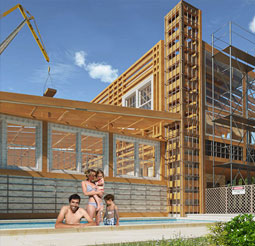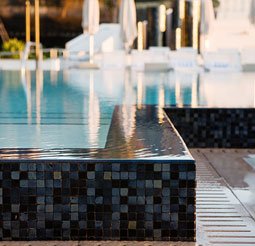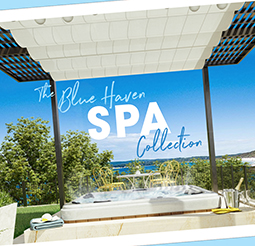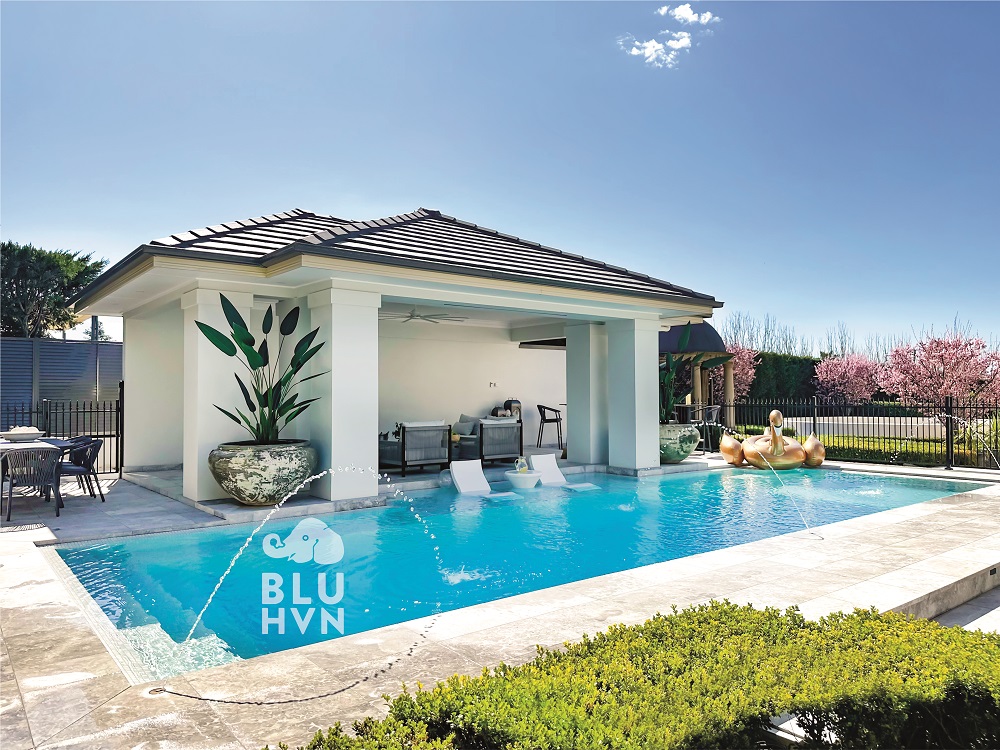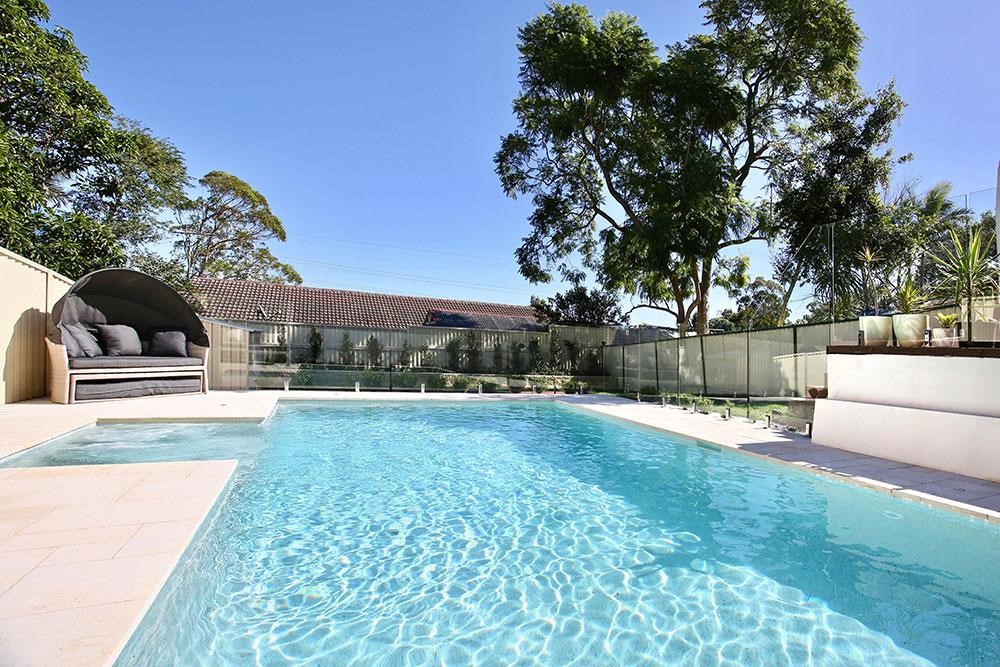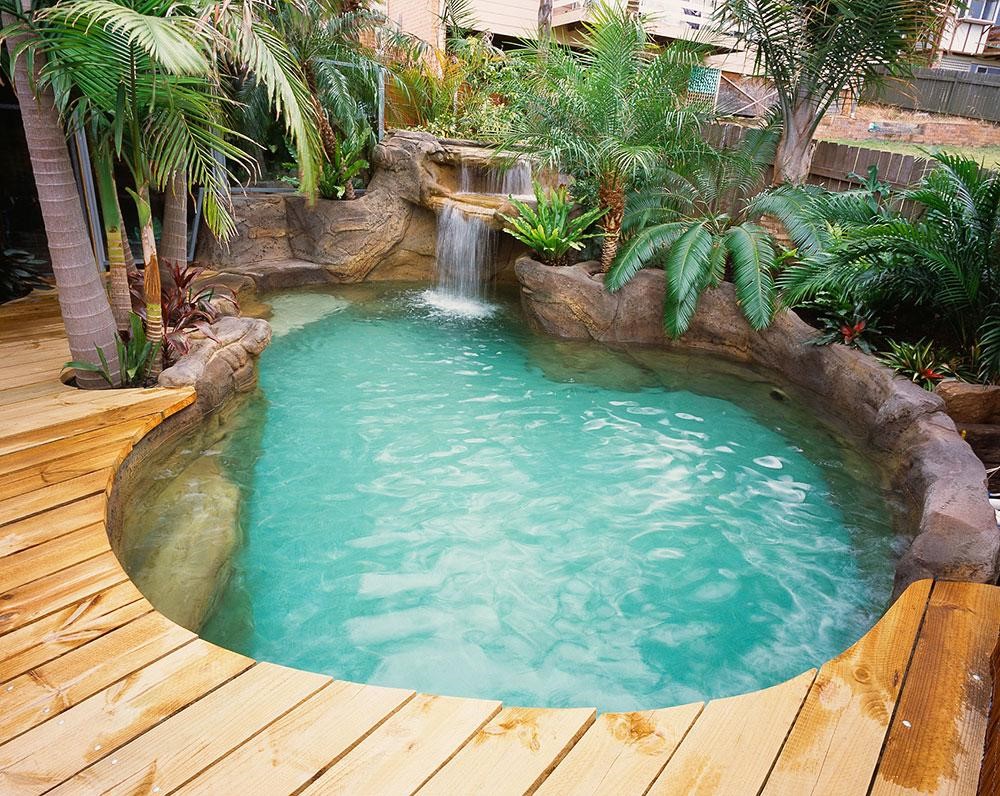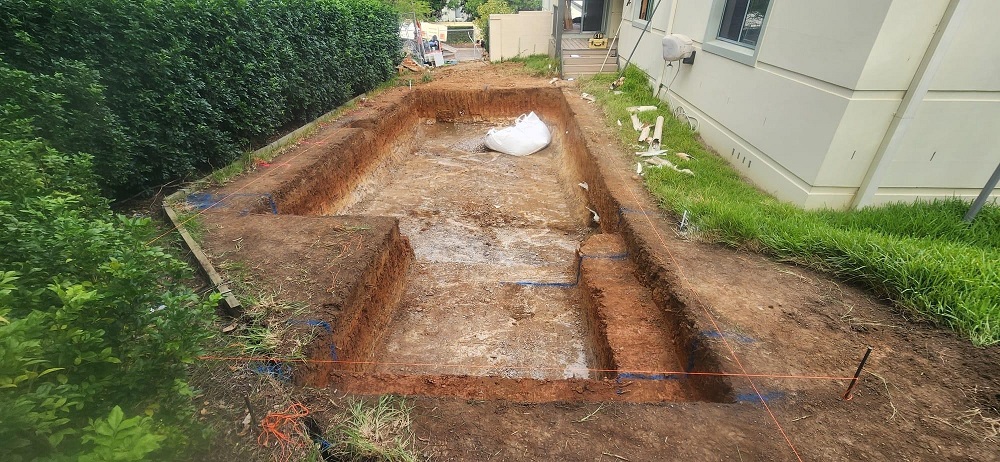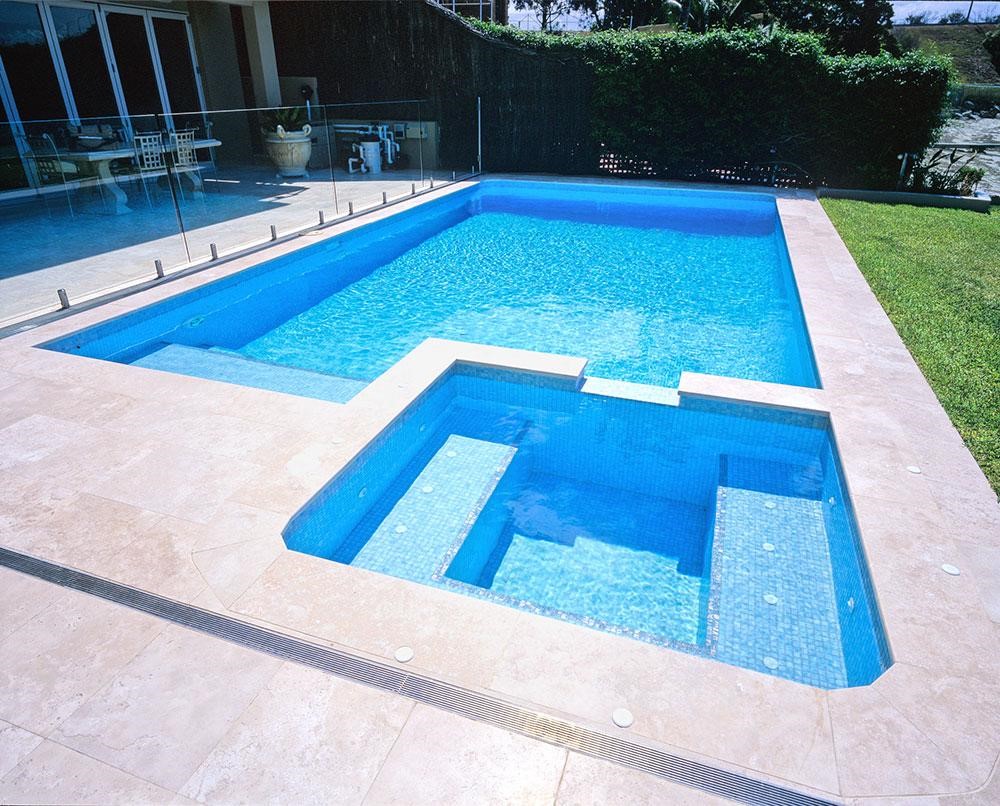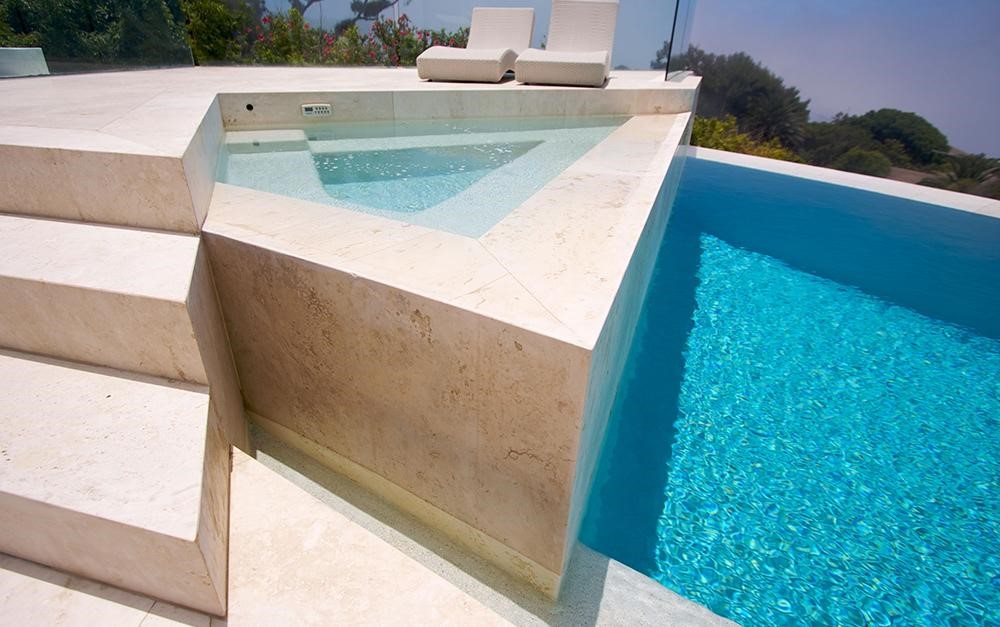13 Things You Need to Know to Ensure Occupation Certificate Compliance For Your Pool
July 26, 2021
Did you know that you can’t swim without an Occupation Certificate?
An Occupation Certificate is a document issued by the NSW Swimming Pool Register for property owners that sells or lease a property with a pool or spa. From 29th April 2016, properties with pools have to follow these key points:
- All properties with a swimming pool or spa pool being sold or leased on or after 29th April 2016 will need a valid certificate of compliance, certificate of non-compliance or a relevant occupation certificate.
- A certificate of non-compliance will enable the seller to transfer the responsibility to obtain a certificate of compliance to the buyer.
- This transfer will be realised through the attachment of a certificate of non-compliance to the contract for sale.
The selection of a registered certifier is the responsibility of the pool owner and the builder will not object to the owner’s selection of any particular certifier.
Here are 13 more things you should know to ensure occupation certificate compliance for your pool:
- SIGNAGE FOR POOLS UNDER CONSTRUCTION OR RENOVATION: All pools under construction must display the mandatory sign which states: “This swimming pool isn’t to be occupied or used”. The sign can only be removed once a certificate of compliance or occupation certificate has been issued. Negligence of such will result in further damages and disruption of the entire process.
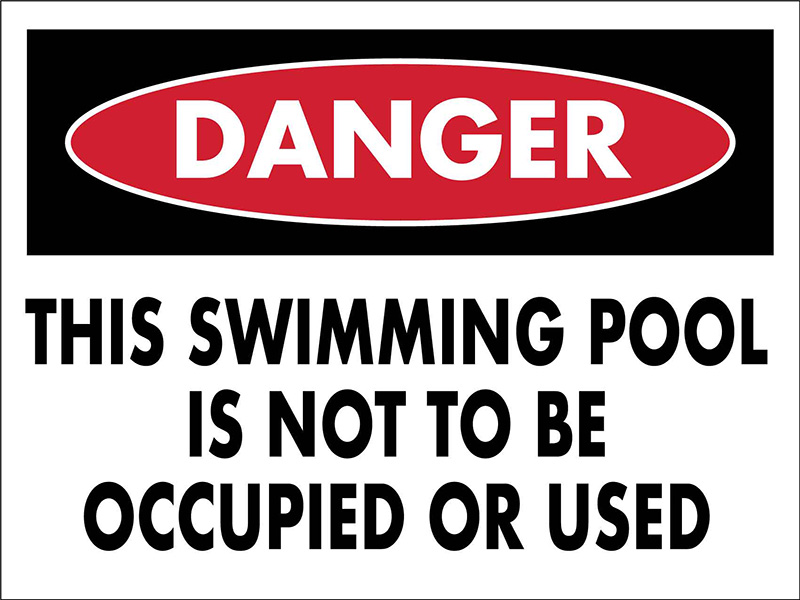
- PIER INSPECTION: If your pool requires piering due to Water Board or Easement requirements, a pier inspection must be immediately booked in at the time of excavation. Results must be handed over to the certifier.
- SCREW PILES: The contractor must provide a certificate of adequacy which is to be supplied to the certifier if screw piles are found to be indisputably necessary for your pool. You need to know in advance if your pool needs this compliance so you can prepare in advance.
- STEEL INSPECTION: Steelworks are done after excavation. The council/certifier inspects the steel pattern as per engineering and must grant approval prior to the day of concrete spray. In most cases, certifiers require an engineering certificate so inspecting the steel themselves will not suffice. This is important to pre-book if required to avoid prolonged delays before concrete spray and the site being vulnerable to wet weather.
- EARTHING THE POOL STEEL: In earthing pools, Blue Haven installs an earth wire that is usually tied at the skimmer box. And glass fencing steel spigots are also needed to be earthed if your pool fence is within 1.25 metres of water to avoid electrocution. In this phase, your electrician needs to be fully knowledgeable of the electric compliance certificate wiring rules AS 3000. If successfully done, the certificate should be handed over to the certifier.
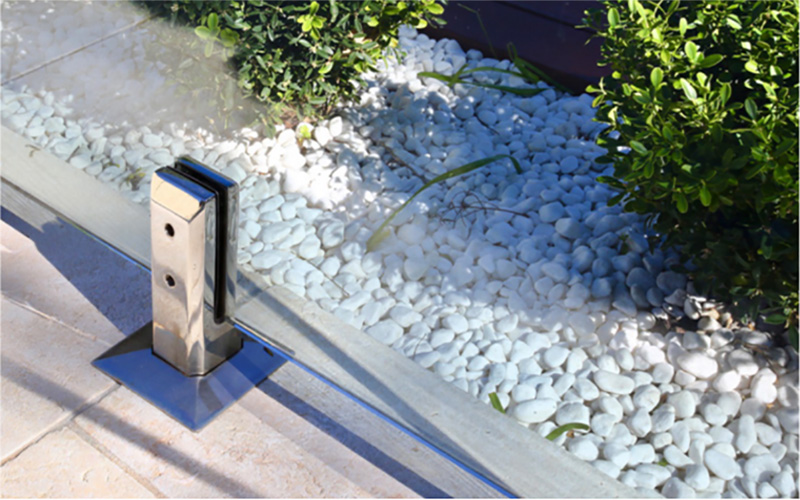
- FILTRATION ENCLOSURE: Equipment must be enclosed in a soundproof enclosure box to meet final compliance. Though designed for outdoor use, it needs protection to prevent reduced filtration and ultimately, the dreaded algae bloom.
- FENCE INSPECTION: To protect your pool from possible damages and to restrict unauthorised entry, be sure to keep these things on your checklist to achieve proper compliance:
- Install an approved CPR sign inside the pool area. Most choose the shallow end of the pool.
- Check your pool gate is self-closing and that the gate opens outwards from the pool.
- Look over if there are no gaps under the fence that exceed 100mm.
- Check the height of the latching mechanism – it should be 1500mm above the ground.
- Ensure that your pool fences are 1200mm high measured from outside the fence from the ground level or any surface within 500mm of the fencing.
- Look for climbing hazards outside your fences and remove them – this includes pots, furniture and fixed structures that should be relocated out of the climb zone.
- Remove trees, hedges and vegetation. They can be used to climb.
- If there is a Boundary Fence as a part of the enclosure, it must be 1800mm high and completely free of climb points.
- Keep other activities out of the pool enclosure – no clothesline, no BBQ or dining, no trampoline or cubby house.
- Glass fences will need a glazing certificate provided to the certifier to ensure the right quality of glass has been used and is not likely to explode in the future.
- There are to be no doors or windows opening from the dwelling or other outbuildings entering the pool area.
- No vegetation or obstructions must be seen within a 900mm arc from the top of the boundary fence within the pool area.
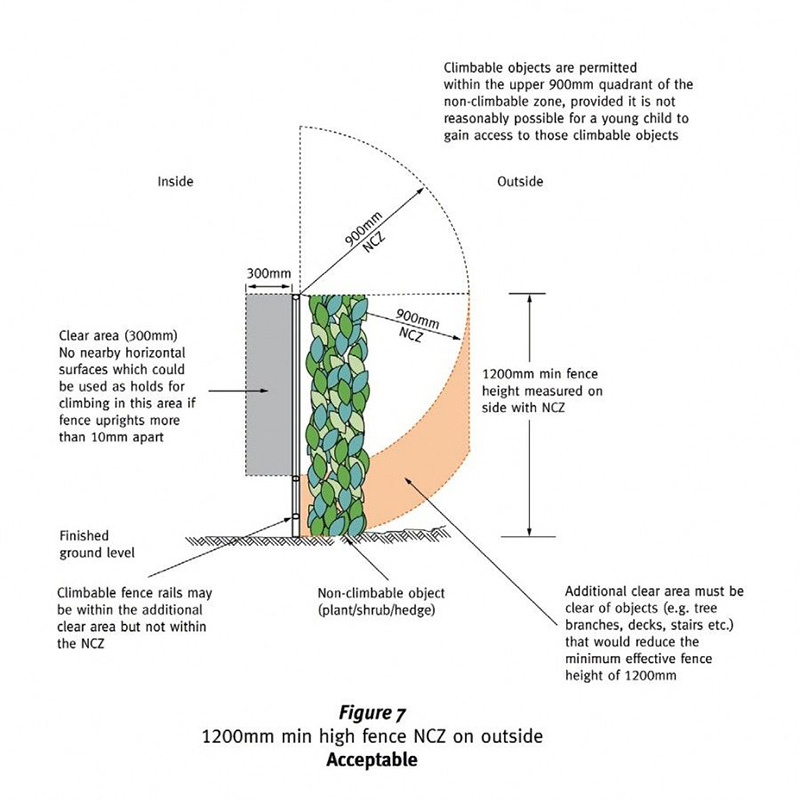
- EXTERNAL AREAS: There must be no decks or holding dividers developed around the pool without earlier endorsement from the council. Additional surfaces may not meet compliance codes according to hardscape and softscape proportions.
- BASIX COMPLIANCE: If you are subjected to Basix due to having a larger sized pool, the NSW government stipulates certain requirements in terms of water conservation measures that you need to carry out. For example, a rainwater tank of 1426L capacity shall be installed and it is to collect from at least 210sqm of roof area. You are also required to install a tap located within 10m distance of the swimming pool.
- FINAL INSPECTION: This is done after your handover when the pool’s water is filled with water and the certifier found all the things mentioned under fence Inspection compliant. The final inspection will result in the final occupation certificate being issued.
PLEASE NOTE: Occupying your swimming pool without the Final OC is ILLEGAL and PUNISHABLE by law.
These are the documents needed so the Final Occupation Certificate can be issued:
- OC Application form – to be filled and signed by both owners
- Glazing Certificate – if the fence is made of glass (should be issued by the fence installer)
- Electrical compliance certificate to wiring rules as 3000 (must include earthing of the pool)
- Swimming Pool Registration Certificate – register on the below link and send a copy to the certifier https://www.swimmingpoolregister.nsw.gov.au/pooldb/pgOwnerLanding
- SPECIFIC REQUIREMENTS: Some approvals will have specific conditions over and above what is listed and is specific to your site approval. Rest assured that the certifier will advise you of these requirements, which may include engineer certifications, sign offs, identification surveys prepared by a registered surveyor, and etc.
- REINSPECTIONS: Failed or unsatisfactory inspection is subject to re-inspection and might incur a re-inspection fee plus GST.
- SELLING YOUR PROPERTY: Keep the copy of your Final Occupation Certificate safe as this will be one of your best assets in selling the property. In case of its loss, the council may charge you for another copy and retrieval of its copy in the archives will cause a delay in the process of selling your home. Failure to attach the certificate to your contract of sale means the purchaser may be entitled to rescind the contract at any time within 14 days of exchange, which is the last thing we want to happen.
For nearly 50 years, Blue Haven Pools & Spa has led the way in pool design and construction, with over 70,000 pools built and more than 350 industry design awards won to date. As a family-owned and operated business, our commitment to unparalleled customer service and building high-quality pools and spas have never faltered since our founding in 1973 and never will.
If you are planning on building your dream pool to life, don’t hesitate to contact us at 13 20 25. You can also check our online pool package deals here: https://bluehaven.com.au/pool-spas/pool-package-deals/

